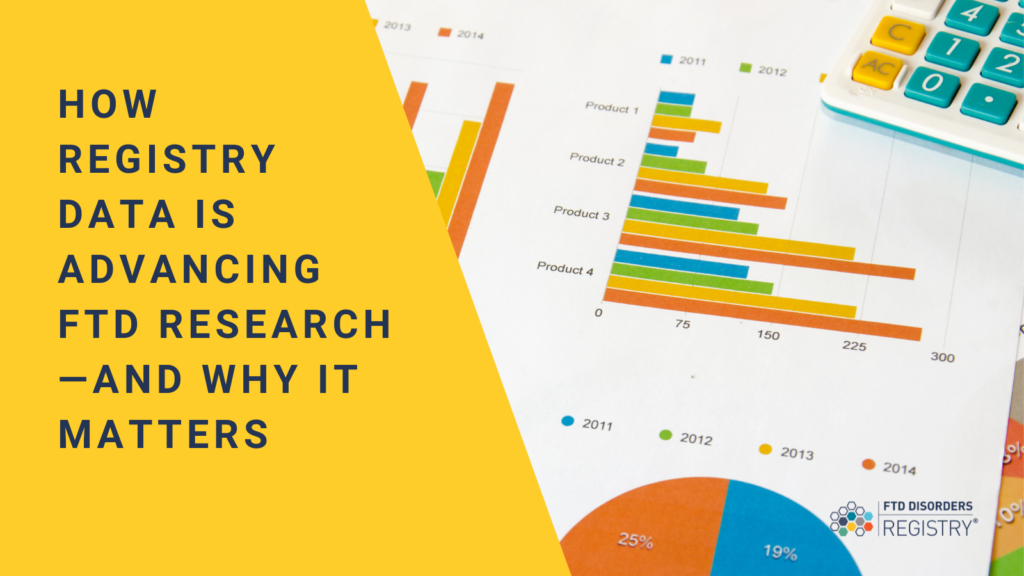PRESS & NEWS
How Registry Data Is Advancing FTD Research—and Why It Matters

The FTD Disorders Registry is a powerful resource for scientists studying FTD disorders. Learn more about how your de-identified data is used.
If you are part of the FTD Disorders Registry, you have already taken an important step toward helping researchers better understand frontotemporal degeneration (FTD). But you might be wondering what actually happens to the information you share?
The short answer: your data is making a real difference.
Building a Smarter Roadmap for FTD Research
The FTD Disorders Registry is a powerful resource for scientists studying FTD disorders. By collecting real-world information directly from people living with an FTD disorder, their caregivers, and their families, the Registry helps researchers:
- Identify patterns and trends in symptoms, diagnosis timelines, and disease progression.
- Understand the lived experience of FTD disorders, including challenges with daily functioning, care needs, and quality of life.
- Inform the design of clinical trials by helping researchers find the right participants and shape studies on topics that matter most to people living with FTD and their families.
Connecting the Right People to the Right Studies
One of the most powerful ways the Registry supports research is by helping match participants to clinical studies. Whether it is a trial for a potential treatment, a natural history study, or a survey on the care partner experience, Registry participants can opt in to be contacted about opportunities that fit their interests .
This helps researchers recruit faster and ensures that people affected by FTD disorders can have a voice in shaping the future of care and treatment.
Driving Awareness Where It’s Needed Most
Registry data also helps researchers and public health leaders better understand where services, education, and policy support are most urgently needed.
For example, it can reveal:
- Which FTD subtypes currently have research-ready populations, meaning enough individuals have registered and are willing to be contacted for clinical trials or studies
- What symptoms are most often missed or misinterpreted
- What support systems families are – or aren’t – able to access
This information helps guide funding decisions, improves the design of research studies, and strengthens efforts to improve care and resources.
Your Ongoing Role Matters
If you are already part of the Registry, thank you! Your story is helping advance science and accelerate hope. One of the best ways you can keep contributing is by updating your information regularly. As your experience with FTD changes, that data becomes even more valuable to researchers working to make a difference.
If you have not signed in for a while, now is a great time to log in and make sure your profile reflects your current experience.
Log in and update your profile
Numbers have power. Anyone with an interest in FTD disorders research is welcome to join the Registry. If you are not yet a member of the Registry, you can learn more and sign up at www.ftdregistry.org.
Together we can find a cure for ftd
The FTD Disorders Registry is a powerful tool in the movement to create therapies and find a cure. Together we can help change the course of the disease and put an end to FTD.
Your privacy is important! We promise to protect it. We will not share your contact information.



